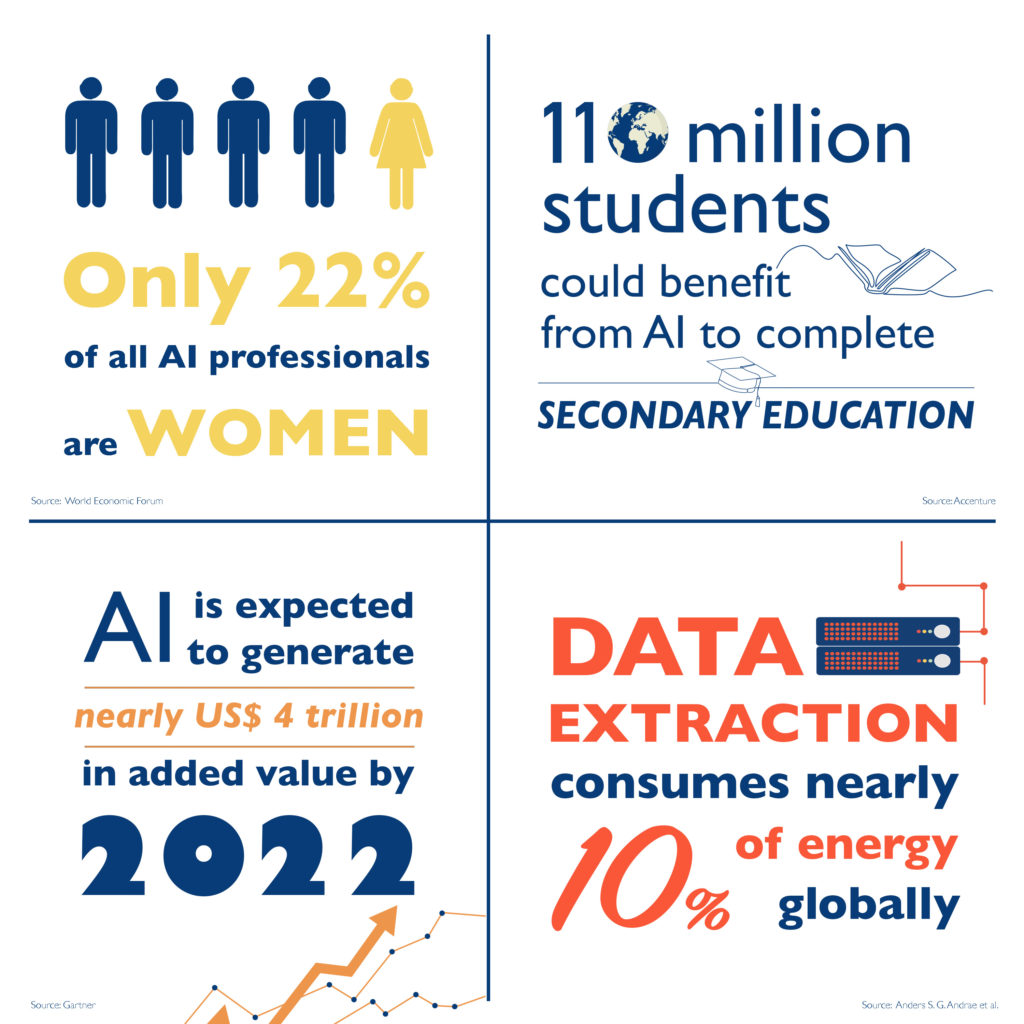Blog by Marie-Christine Gries, UNESCO SI UN Representative.
Artificial intelligence is rapidly conquering all areas of human activity. New technologies open up considerable possibilities for accelerating the research, creation and organisation of work in all areas. During the COVID-19 pandemic crisis, artificial intelligence technologies have demonstrated their potential for education and the organisation of work. Today, in addition to the potential of very encouraging progress for the future, serious societal problems are also being generated by the exploitation of these innovations.
The protection of personal data is weak, and the misuse of this information is a great danger to individual freedoms. Programming carries risks of bias due to stereotypes. Human rights are under threat. Technology education is not universally provided. Therefore, not all citizens of the world are able or equipped to master the basic use of it regardless of their age, gender, or language, while technology is increasingly imposed on them in their daily lives. Computer illiteracy is a factor of marginalisation and contributes to increasing inequalities, between regions of the world, between rich and poor, and between genders.
In addition, social networks have established themselves in the information field. The spread of fake news and manipulative messages, incitement to hatred and violence proliferates without barriers, facilitated by the anonymity of their authors and the volatility of publications.
UNESCO has identified these key issues and potential problems. At the end of two years of work shared very inclusively between experts from all States and Civil Society, UNESCO submitted to the General Conference a Recommendation document on the ethics of artificial intelligence. The Recommendation was approved by consensus at the General Conference. It builds an international normative framework that States are invited to implement by adopting appropriate laws and regulations, adapted to their national cultures and legislative systems. A recommendation is not a constraint. Nevertheless, the unanimous consensus of the vote on this text constitutes a moral commitment for the governments.
The Recommendation addresses issues relating to four fundamental imperatives:

Image from UNESCO.
- Respect, protection and promotion of human rights, freedoms and human dignity;
- The culture of diversity and inclusion;
- The protection of the environment and ecosystems;
- Living in peace in interconnected and just societies.
Particular attention is paid to gender equality, the elimination of biases and stereotypes in algorithms, governance and data protection, as well as ensuring competitive markets for consumers are free of dominant positions and monopolies.
It is then divided into ten principles of political action and indicates the areas in which these principles must be implemented, regulated and managed. Two assistance tools are set up by UNESCO to help States verify the ethical impact of their management and the effectiveness of their methods. Monitoring is also planned in place to measure State governance with reports every four years.


How do we empower women with knowledge in these areas of digital world. My opinion is that we seldom act at the right time. Is it not possible for all the women working and having profound skill and talent in AI , and data science to collectively come forward and device coaching or training programs for women.